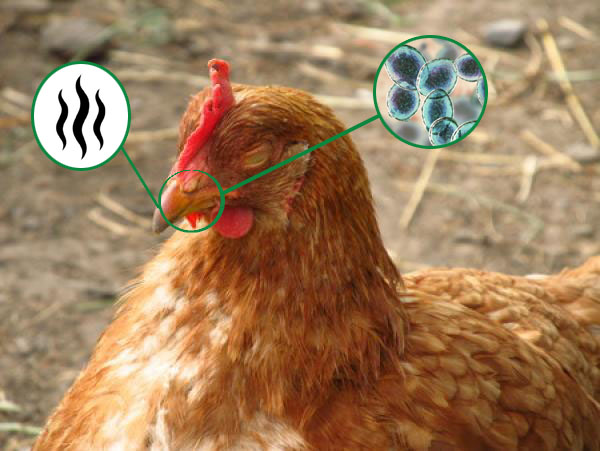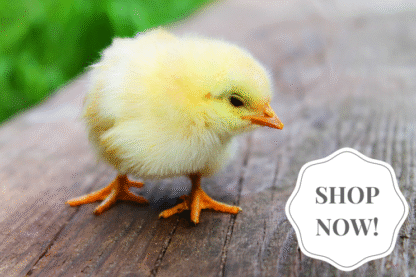
Sour crop in chickens and turkeys is caused by yeast of the Candida species. The condition, also known as thrush, is technically called candida infection or candidiasis. Left untreated, sour crop can have dire consequences.
Signs of Sour Crop
Sour crop typically affects either young and growing or aging and elderly birds, but may occur in chickens or turkeys of any age. The most obvious signs are: a sour or yeasty odor coming from the bird’s mouth (bad breath); smelly, watery regurgitation; and an enlarged crop that feels squishy and fluid-filled when you apply slight pressure.
Other signs include: excessive beak rubbing; brownish, watery droppings; and white patches inside the mouth. The bird may become lethargic, stop eating and drinking, and eventually die.
Causes of Sour Crop
Candida normally live in the digestive tract of chickens, turkeys, and other animals, including humans. Sour crop occurs when the yeasty beasties get out of control, which can happen when the normal bacteria of the crop are disrupted, such as through the inappropriate use of an antibiotic or coccidiostat.
Other factors include unsanitary drinking water, malnutrition (especially vitamin A deficiency), and a heavy parasite load or other condition that weakens the bird’s immune system. A crop impaction encourages the fermentation of feed lodged in the crop, and can lead to sour crop if not immediately treated.
Treating Sour Crop
In a mild case of sour crop, adding vinegar to the drinking water at the rate of 1 tablespoon per gallon — double the dose if your water is alkaline — can help in two ways. Vinegar discourages the growth of candida in the drinking water. And it helps the crop maintain the proper pH to encourage beneficial bacteria that compete against candida. Note: Adding too little vinegar to the drinker can actively stimulate yeast growth.
A popular — but risky — treatment is to massage the crop to loosen its contents while briefly (no more than 20 seconds at a time) turning the bird’s head downward to try to drain out the contents. The chicken or turkey, however, runs the risk of inhaling regurgitated crop contents. Furthermore, this treatment does nothing to prevent the problem from recurring.
When an affected bird stops eating and drinking, it’s time for a trip to the vet. An avian vet can surgically empty the crop and rinse it with an antiseptic solution. The vet can also prescribe one of several anti-fungal medications, the effectiveness of which depends on the severity of the infection. For a mild case, pomegranate (Punica granatum) peel powder is an alternative and readily available natural antifungal.
Regardless of the course of action, treatment for sour crop is not always successful, especially if the crop has been stretched beyond its normal elasticity. Further, unless the underlying condition is eliminated that allowed this infection to occur, the chicken or turkey will likely relapse.
Preventing Sour Crop
To prevent sour crop in chickens and turkeys, guard against parasite overload or any other health condition that reduces a bird’s overall immunity. At the same time, avoid the prolonged or inappropriate use of coccidiostats, antibiotics, and other antimicrobials. Maintain good sanitary conditions in the coop, which includes rinsing drinkers daily and filling them with fresh water.
And that’s today’s news from the Cackle Coop.
Gail Damerow is author of The Chicken Health Handbook.

